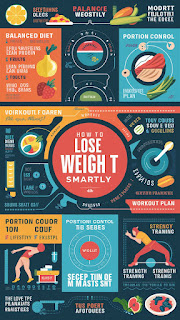How exercise affects metabolism and weight loss

“The Biggest Loser” (NBC) Many of us recall Drop to Win (The Biggest Loser), a famous regular reality show that aired for nearly a decade beginning in 2004, in which participants fought to lose a significant amount of weight in a short amount of time. One of the most important takeaways from the show seems to be that combining rigorous exercise with tight calorie control resulted in considerable weight loss.
However, years later, media coverage of the finalists appears to paint a different picture, with weight increase, a slowed metabolism, and the futility of long-term weight loss.
right Now, According to a recent scientific examination of the program and its consequences published last month in the journal obesity, many preconceptions about “lose to win” may be incorrect. The investigation tries to figure out what happened to the individuals’ metabolisms and why some fared better than others. It also investigates the complicated function of exercise and if being physically active has helped runners maintain their weight for years.
“Lose to Win” was replayed on the network for anyone who may have forgotten or attempted to see it. NBC With a large public audience for over 12 seasons. Participants raced to drop the most kilos by adhering to tight calorie limits and engaging in hours of intense exercise each day. The “winners” shed dozens of kg in a few of months.
Kevin Hall, a senior researcher at the National Institute of Diabetes and Digestive and Kidney Diseases, part of the National Institutes of Health, is intrigued by rapid and severe weight reduction. As a metabolic specialist, Hall observed that when patients lose a lot of weight in a short period of time, they frequently lose their weight. the pace of metabolism In free fall, we are at rest (the fundamental calories we expend each day once we are alive). We may burn less calories overall if our resting metabolic rate is lower.
Previously, it was considered that this impact was caused in part by muscle loss throughout the diet. Muscle burns more calories than fat because it is a more active tissue, and having more muscle implies having a greater metabolic rate. So Hall wondered: Did high levels of activity during “win-loss” assist dieters preserve muscle tissue and maintain a high resting metabolic rate even when their calorie intake was reduced?
Hall and his colleagues launched the first round of trials to find out more than a decade ago. In a 2012 research, scientists compared 16 men and women who dropped a lot of weight by decreasing calories due to gastric bypass surgery to 16 competitors in a Lost to Win program who lost a lot of weight through exercise and nutrition. The bypass group, as predicted, lost muscle and fat, but participants in the “lose to win” program preserved the majority of their muscular tissue while losing predominantly fat. However, regardless of whether or not they kept any decent muscle, their resting metabolic rate reduced to around the same level.
A follow-up research the following year found that physical activity helped some runners avoid gaining weight. They regained less kilograms if they walked or exercised for roughly 80 minutes practically every day, as opposed to a few times. His physical activities, however, did not enhance his metabolism during rest. In fact, those who exercised had the highest drop in resting metabolic rate.
Perplexed, Hall recently began revisiting “loss to win” studies in light of a new understanding of how human metabolism works fundamentally. This concept stems from a pivotal 2012 study that found highly active hunters in Tanzania burn roughly the same relative number of calories per day as the rest of us, even when they’re constantly on the move.
The researchers expected that tribal peoples’ bodies would naturally compensate for some of the calories they burnt while foraging by decreasing other physiological functions such as growth. (Tribesians were known to be short.) The researchers believe that by doing so, hunters’ bodies can keep the overall quantity of calories they expend each day in balance, regardless of how many kilometers they go in quest of tubers and prey. This concept was dubbed the Limited Total Energy Expenditure Theory by scientists.





.jpg)